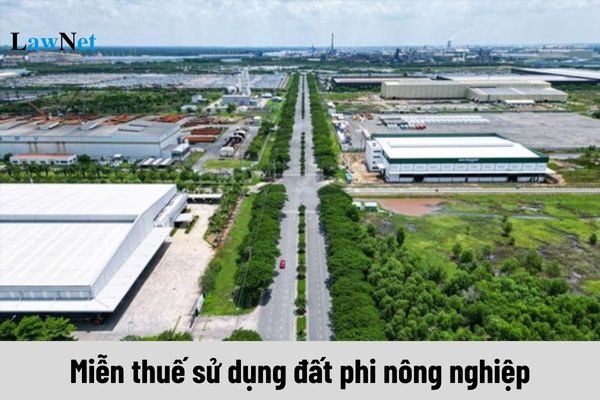Are enterprises employing persons under 18 year old eligible for non-agricultural land use tax exemption in Vietnam?
Are enterprises employing persons under 18 year old eligible for non-agricultural land use tax exemption in Vietnam?
Pursuant to Clause 1, Article 9 of the 2010 Law on Non-Agricultural Land Use Tax, the provisions are as follows:
Tax Exemption
1. Land used for investment projects in fields specially encouraged for investment; investment projects in areas with particularly difficult socio-economic conditions; investment projects in fields encouraged for investment in areas with difficult socio-economic conditions; land used by enterprises employing more than 50% of workers who are war invalids and sick soldiers.
2. Land used by institutions for private investment in activities in education, vocational training, healthcare, culture, sports, and environment.
3. Land for constructing charity houses, solidarity houses, institutions for caring for the lonely elderly, people with disabilities, orphans; institutions for social disease treatment.
4. Residential land within the limit in areas with particularly difficult socio-economic conditions.
5. Residential land within the limit for revolutionaries active before August 19, 1945; war invalids ranked 1/4, 2/4; beneficiaries of policies equivalent to war invalids ranked 1/4, 2/4; sick soldiers ranked 1/3; heroes of the people's armed forces; Vietnamese heroic mothers; biological parents, adoptive parents, persons credited with raising martyrs during their adolescence; spouses of martyrs; children of martyrs receiving monthly allowances; revolutionaries affected by Agent Orange; persons affected by Agent Orange with difficult family circumstances.
Thus, currently, land use tax exemptions include a total of 5 cases, and there is no provision for tax exemption for enterprises employing persons under 18 year old.

Is the taxable area for non-agricultural land use tax in Vietnam based on the area in the land certificate or actually used land area?
Pursuant to Point a, Clause 2, Article 6 of the 2010 Law on Non-Agricultural Land Use Tax, the provisions are as follows:
Tax Price
1. The taxable price for land is determined by multiplying the taxable area by the price per square meter of land.
2. The taxable area is regulated as follows:
a) The taxable area is the actually used land area of land in use.
In the case where multiple parcels are used for residential purposes, the taxable area is the total area of the taxable parcels.
If the State allocates or leases land for building industrial zones, the taxable area does not include the area of land used for common infrastructure.
...
Hence, the taxable area for non-agricultural land use tax is the actually used land area of land used. If multiple parcels are owned, the taxable area is the total area of the parcels. Therefore, it is based on the actually used land area used, not the area stated in the land certificate.
How to identify the taxpayer for non-agricultural land use tax in Vietnam when the land has been certified but is under dispute?
Pursuant to Point c, Clause 3, Article 4 of the 2010 Law on Non-Agricultural Land Use Tax, the provisions are as follows:
Taxpayer
1. Taxpayers are organizations, households, individuals who have the right to use the land subject to tax as stipulated in Article 2 of this Law.
2. In cases where organizations, households, and individuals have not been granted the Land Use Rights Certificate, House Ownership, and Other Assets Related to Land (collectively referred to as the Certificate), the user of the land is the taxpayer.
3. Specific instances for identifying taxpayers are regulated as follows:
a) In cases where the State leases land for investment projects, the lessee of the homestead land is the taxpayer;
b) In cases where the land use right is leased according to a contract, the taxpayer is identified as per the agreement in the contract. If the contract does not stipulate who the taxpayer is, the land-use right holder is the taxpayer;
c) In cases where the land has been certified but is under dispute, before the dispute is resolved, the land user is the taxpayer. Paying the tax is not a basis for resolving disputes over land use rights;
d) In cases where multiple people have the right to use one parcel, the taxpayer is the legal representative of those who jointly hold the rights to that parcel;
dd) In cases where the land-use right is contributed as business capital to form a legal entity that holds the land use right subject to tax as per Article 2 of this Law, the new legal entity is the taxpayer.
According to this regulation, in cases where the land has been certified but is under dispute, before the dispute is resolved, the land user is the taxpayer. Paying the tax is not a basis for resolving disputes over land use rights.

